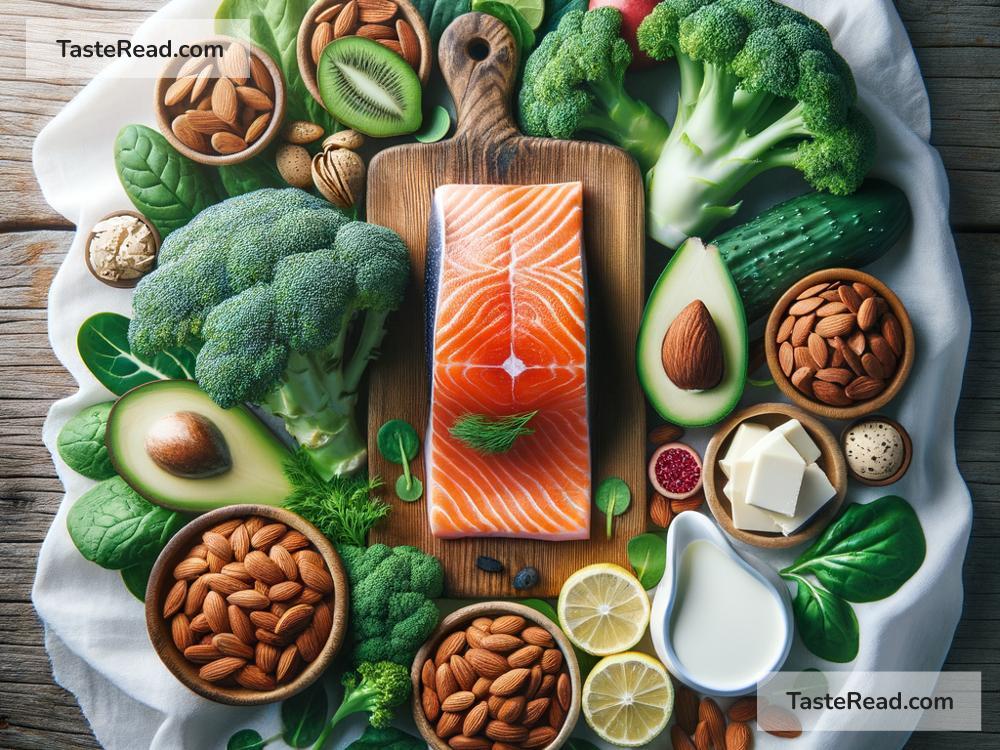Foods That Support Jawbone Health
Your jawbone is an essential part of your body. It helps you chew and speak and gives your face its structure. Keeping your jawbone strong and healthy is important for overall health, but many people don’t realize that the foods they eat can make a big difference. In this article, we’ll explore simple, easy-to-understand information about foods that can support jawbone health—and improve your overall well-being, too.
Why Your Jawbone Needs Healthy Foods
Your jawbone, like the rest of your bones, needs nutrients to grow strong and stay that way. If you don’t get enough of these nutrients, your jawbone can weaken over time. This can cause problems like tooth loss, difficulty chewing, or even changes in your face shape.
Bones are living tissue, meaning they’re constantly breaking down and rebuilding. To stay strong, they rely on key nutrients like calcium, vitamin D, magnesium, and more. Luckily, many of these nutrients can be found in everyday foods that are easy to include in your meals.
The Key Nutrients for Jawbone Health
Before diving into specific foods, it’s helpful to know what nutrients your jawbone needs:
- Calcium: Calcium is the building block of bones. It’s essential for maintaining bone density and strength.
- Vitamin D: Vitamin D helps your body absorb calcium. Without it, even if you eat calcium-rich foods, your body won’t use the calcium effectively.
- Magnesium: Magnesium works with calcium to make bones stronger.
- Phosphorus: This mineral combines with calcium to create the hard, strong structure in your bones.
- Vitamin K: Vitamin K helps direct calcium to your bones and keeps it from building up in other areas like your arteries.
- Protein: Protein is needed for bone repair and growth.
Now that you know what your jawbone needs, let’s look at some foods that are rich in these nutrients.
Foods That Help Your Jawbone
1. Dairy Products
Dairy products like milk, yogurt, and cheese are packed with calcium. They’re easy to add to meals or snacks, and many dairy options also contain vitamin D, which boosts your body’s ability to absorb calcium.
For example:
– A glass of milk with breakfast.
– Adding cheese to sandwiches, salads, or omelets.
– Snacking on yogurt with fresh fruit.
If you’re lactose intolerant or avoid dairy, you can choose calcium-fortified plant-based milk like almond, soy, or oat milk. Make sure to pick options that have added vitamin D, too.
2. Leafy Green Vegetables
Leafy greens like spinach, kale, and collard greens are excellent sources of calcium. They also contain magnesium, another bone-friendly nutrient. These veggies are easy to cook, or you can toss them into your salads and smoothies.
For example:
– Add spinach to scrambled eggs or pasta dishes.
– Make a kale salad with nuts and dried fruit for added nutrients.
– Blend collard greens in a smoothie with frozen berries.
3. Fatty Fish
Fatty fish like salmon, mackerel, and sardines are rich in vitamin D, which helps your body absorb calcium. They also contain omega-3 fatty acids that reduce inflammation and support bone health.
For example:
– Grill a salmon fillet for dinner.
– Make sardine and avocado toast for lunch.
– Add canned mackerel to pasta or rice bowls.
4. Nuts and Seeds
Nuts and seeds are excellent sources of magnesium and phosphorus. Almonds, walnuts, chia seeds, and flaxseeds can easily be added to your diet.
For example:
– Snack on a handful of mixed nuts between meals.
– Sprinkle chia seeds on oatmeal or yogurt.
– Add ground flaxseed to baked goods or smoothies.
5. Eggs
Eggs are another great source of vitamin D when eaten whole (the vitamin is in the yolk). They’re convenient to make and can be enjoyed in many different ways.
For example:
– Scramble eggs for breakfast.
– Boil eggs for a portable snack.
– Add eggs to fried rice or noodle dishes.
6. Whole Grains
Whole grains like brown rice, quinoa, and oats contain magnesium and phosphorus. These grains can be the base of your meals and provide energy along with nutrients for your jawbone.
For example:
– Make oatmeal for breakfast with sliced banana and nuts.
– Use quinoa as a base for a salad or bowl.
– Serve brown rice alongside stir-fried veggies.
7. Fruits
Certain fruits, like oranges and berries, are rich in vitamins and antioxidants that support healthy bones. Oranges contain vitamin C, which helps in collagen formation—a key component of bones. Berries like strawberries and blueberries provide antioxidants that reduce inflammation.
For example:
– Snack on an orange or grapefruit.
– Add berries to your morning cereal or yogurt.
– Make a smoothie with fresh or frozen fruits.
Take Care of Bone Health Early
While your jawbone health may not be something you think about every day, eating the right foods now can prevent problems in the future. A diet rich in calcium, vitamin D, magnesium, and other key nutrients strengthens not only your jawbone but all the bones in your body.
Start small! Simply add some leafy greens to your meals, snack on nuts, or enjoy fatty fish a few times each week. Combined with good oral hygiene and regular visits to your dentist, these changes will help your jaw stay healthy and strong for years to come.
Your jawbone does so much for you—make sure you give it the nutrients it deserves!


